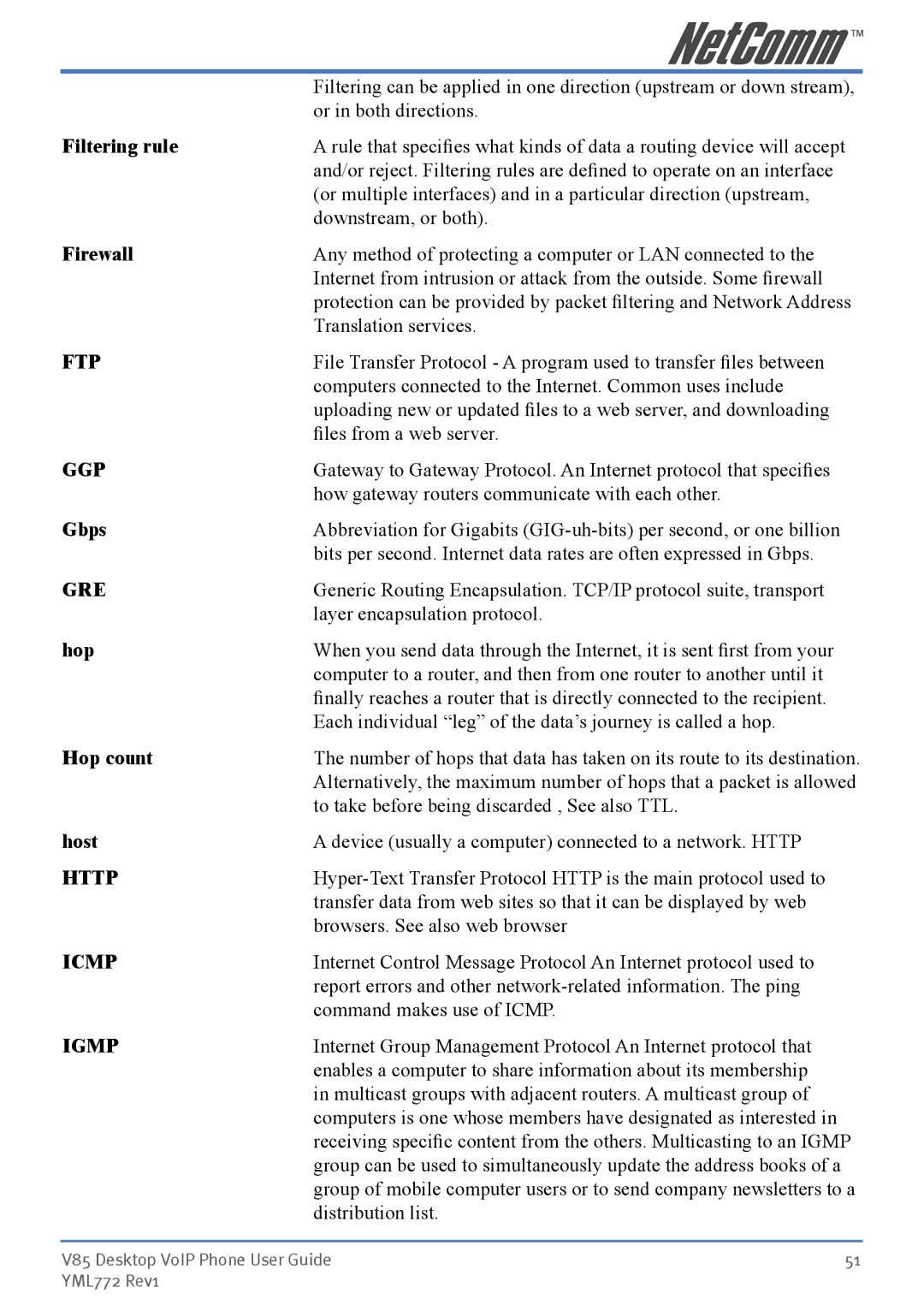
| Filtering can be applied in one direction (upstream or down stream), |
| or in both directions. |
Filtering rule | A rule that specifies what kinds of data a routing device will accept |
| and/or reject. Filtering rules are defined to operate on an interface |
| (or multiple interfaces) and in a particular direction (upstream, |
| downstream, or both). |
Firewall | Any method of protecting a computer or LAN connected to the |
| Internet from intrusion or attack from the outside. Some firewall |
| protection can be provided by packet filtering and Network Address |
| Translation services. |
FTP | File Transfer Protocol - A program used to transfer files between |
| computers connected to the Internet. Common uses include |
| uploading new or updated files to a web server, and downloading |
| files from a web server. |
GGP | Gateway to Gateway Protocol. An Internet protocol that specifies |
| how gateway routers communicate with each other. |
Gbps | Abbreviation for Gigabits |
| bits per second. Internet data rates are often expressed in Gbps. |
GRE | Generic Routing Encapsulation. TCP/IP protocol suite, transport |
| layer encapsulation protocol. |
hop | When you send data through the Internet, it is sent first from your |
| computer to a router, and then from one router to another until it |
| finally reaches a router that is directly connected to the recipient. |
| Each individual “leg” of the data’s journey is called a hop. |
Hop count | The number of hops that data has taken on its route to its destination. |
| Alternatively, the maximum number of hops that a packet is allowed |
| to take before being discarded , See also TTL. |
host | A device (usually a computer) connected to a network. HTTP |
HTTP | |
| transfer data from web sites so that it can be displayed by web |
| browsers. See also web browser |
ICMP | Internet Control Message Protocol An Internet protocol used to |
| report errors and other |
| command makes use of ICMP. |
IGMP | Internet Group Management Protocol An Internet protocol that |
| enables a computer to share information about its membership |
| in multicast groups with adjacent routers. A multicast group of |
| computers is one whose members have designated as interested in |
| receiving specific content from the others. Multicasting to an IGMP |
| group can be used to simultaneously update the address books of a |
| group of mobile computer users or to send company newsletters to a |
| distribution list. |
V85 Desktop VoIP Phone User Guide | 51 |
YML772 Rev1 |
|
